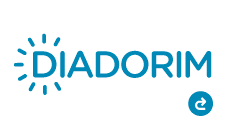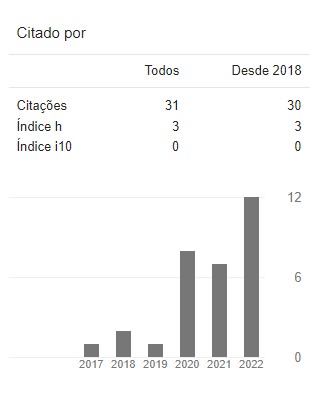Análise e aplicação dos pronunciamentos US GAAP SFAS 109, SFAS 141, ASC 740 e ASC 805: um estudo de caso no Brasil
Resumo
Este estudo investiga como os pronunciamentos do US-GAAP relacionados a combinações de negócios e imposto de renda diferido mudaram substancialmente ao longo do tempo. O estudo de caso foi realizado a partir de dados coletados por meio da observação direta da equipe de controladoria local envolvida no processo de combinação de negócios. Os resultados nos casos de (a) combinação de negócios e (b) imposto de renda diferido, conclui-se, respectivamente: (a) para US-GAAP é utilizado o método de aquisição contábil e (b) demonstra que tanto SFAS 109 quanto ASC 740, continua a orientar, de forma genérica e inadequada, o procedimento de reconhecimento contábil relativo ao imposto de renda diferido em caso específico de combinação de negócios. A pesquisa contribui tanto para a prática quanto para a acadêmica. Apesar de amplamente utilizados, as combinações de negócios e o imposto de renda diferido não são objeto de pesquisas profundas e continuadas. Finalmente, este trabalho não analisa o efeito das combinações de negócios e impostos diferidos para fins de IFRS.
Referências
Accounting Principles Board. (1966). APB Opinion No. 11: Accounting for Leases.
Accounting Principles Board. (1970). Accounting for Convertible Debt and Debt Issued with Stock Purchase Warrants. Accounting Principles Board Opinion No. 16.
Acheampong, D., Valencia, A., & Volkan, A. (2013). Industry specific impact of simplifying deferred taxes. Journal of Finance and Accountancy,13(1).
Anantharaman, D. (2015). Understanding the evolution of SFAS 141 and 142: An analysis of comment letters. Research in Accounting Regulation, 27(2), 99-110. https://doi.org/10.1016/j.racreg.2015.09.001
Ayers, B. C., Lefanowicz, C. E., & Robinson, J. R. (2000). The financial statement effects of eliminating the pooling-of-interests method of acquisition accounting. Accounting Horizons, 14(1), 1-19. https://doi.org/10.2308/acch.2000.14.1.1
Blaylock, B., Shevlin, T., & Wilson, R. J. (2012). Tax avoidance, large positive temporary book-tax differences, and earnings persistence. The Accounting Review, 87(1), 91-120. https://doi.org/10.2308/accr-10158
Camfferman, K., & Detzen, D. (2018). “Forging accounting principles” in France, Germany, Japan, and China: A comparative review. Accounting History, 23(4), 448-486. https://doi.org/10.1177/1032373218763945
Carmichael, B. (2020). FASB ASC 740‐20. In Accounting for Deferred Income Taxes. https://doi.org/10.1002/9781119724636.ch6
Comissão de Pronunciamentos Contábeis (2011). CPC 15 - Combinação de Negócios.
Davies, P. L. (2017). Control Shifts via Share Acquisition Contracts with Shareholders. Oxford Legal Studies Research Paper No. 7/2017. https://doi.org/10.2139/ssrn.2873764
Davis, M. L. (1990). Differential Market Reaction to Pooling and Purchase Methods. Accounting Review, 65(3), 696-709.
Dorata, N. T. (2009). History repeats itself: The acquisition method and nonrecurring charges. Accounting Forum, 33(1), 11-26. https://doi.org/10.1016/j.accfor.2008.07.004
Dunne, K. M. (1990). An empirical analysis of management's choice of accounting treatment for business combinations. Journal of Accounting and Public Policy, 9(2), 111-133. https://doi.org/10.1016/0278-4254(90)90014-Q
Edwards, A. (2018). The deferred tax asset valuation allowance and firm creditworthiness. Journal of the American Taxation Association, 40(1), 57–80. https://doi.org/10.2308/atax-51846
El Hajj, Z. S., & Lisboa, L. P. (2001). Business combinations e consolidação das demonstrações contábeis: uma abordagem comparativa entre os pronunciamentos e normas dos US-GAAP, IASC e Brasil. Revista Contabilidade & Finanças, 12(27). https://doi.org/10.1590/s1519-70772001000300003
Feinschreiber, R. (1969). Accelerated depreciation: A proposed new method. Journal of Accounting Research, 7(1), 17-21. https://doi.org/10.2307/2490263
Financial Accounting Standards Board. (1987). SFAS No. 96: Accounting for Income Taxes.
Financial Accounting Standards Board. (1990). Statement of Financial Accounting Concepts No. 6: Elements of Financial Statements. https://www.fasb.org/cs/BlobServer?blobkey=id&blobnocache=true&blobwhere=1175820925509&blobheader=application%2Fpdf&blobcol=urldata&blobtable=MungoBlobs
Financial Accounting Standards Board. (1992). Statement of Financial Accounting Standards No. 109: Accounting for Income Taxes.
Financial Accounting Standards Board. (2001). Financial Accounting Standard No. 141: Business Combinations. https://www.fasb.org/fulldetails?fasbautonumber=141
Financial Accounting Standards Board. (2014). Accounting Standards Update No. 2014-17: Revenue Recognition - Topic 605: Transfer of Control of Nonfinancial Assets and Topic 606: Revenue from Contracts with Customers (Topic 853).
Financial Accounting Standards Board. (2021a). ASC 740: Income Taxes. In Accounting Standards Codification. https://asc.fasb.org/imageRoot/02/65565902.pdf
Financial Accounting Standards Board. (2021b). ASC 740-05-5: Recognition of Uncertain Tax Benefits. In Accounting Standards Codification. https://asc.fasb.org/subtopic&trid=2127150
Financial Accounting Standards Board. (2021c). ASC 740-10: Income Taxes. In Accounting Standards Codification. https://asc.fasb.org/subtopic&trid=2208940
Financial Accounting Standards Board. (2021d). ASC 740-10-10: Overall. In Accounting Standards Codification. https://asc.fasb.org/subtopic&trid=2127150
Financial Accounting Standards Board. (2021e). ASC 740-10-10-1: Objective. In Accounting Standards Codification. https://asc.fasb.org/subtopic&trid=2127150
Financial Accounting Standards Board. (2021f). ASC 740-10-20: Recognition. In Accounting Standards Codification. https://asc.fasb.org/subtopic&trid=2127143
Financial Accounting Standards Board. (2021g). ASC 740-10-25-20: Recognition. In Accounting Standards Codification. https://asc.fasb.org/subtopic&trid=2127147
Financial Accounting Standards Board. (2021h). ASC 740-10-25-3: Recognition. In Accounting Standards Codification. https://asc.fasb.org/subtopic&trid=2127128
Financial Accounting Standards Board. (2021i). ASC 805: Business Combinations. In Accounting Standards Codification. https://asc.fasb.org/imageRoot/02/65565902.pdf
Financial Accounting Standards Board. (2021j). ASC 805-50: Business Combinations - Contingent Liabilities. In Accounting Standards Codification. https://asc.fasb.org/topic&trid=2308959
Financial Accounting Standards Board. (2021k). ASC 805-740: Income Taxes - Business Combinations. In Accounting Standards Codification. https://asc.fasb.org/subtopic&trid=2308974
Flood, J. M. (2021). ASC 740 INCOME TAXES. In Wiley GAAP 2021: Interpretation and Application of Generally Accepted Accounting Principles. https://doi.org/10.1002/9781119736202.ch46
Gray, D., & Torres, R. (2019). Accounting for Business Combinations (Topic 805). World Journal of Business and Management, 5(2). https://doi.org/10.5296/wjbm.v5i2.15031
Harris, P. (2015). Push-down Accounting: A Comprehensive Case Study. Journal of Business Case Studies (JBCS), 11(1), 23–28. https://doi.org/10.19030/jbcs.v11i1.9049
Hendriksen, Eldon S. (1999). Accounting Theory (Eldon S. Hendriksen, Ed.; 5th Edition). McGraw-Hill Education.
Holtzman, Y., & Nagel, P. (2011). Understanding the basics of SFAS 109. Journal of Management Development, 30(1), 106-111. https://doi.org/10.1108/02621711111098406
Johnson, P. M., Lopez, T. J., & Sorensen, T. L. (2020). Did SFAS 141/142 improve the market’s understanding of net assets, goodwill, or other intangible assets? Review of Quantitative Finance and Accounting, 56, 891–915. https://doi.org/10.1007/s11156-020-00912-x
Kwon, S. H., & Wang, G. (2020). The change in the value relevance of accounting information after mergers and acquisitions: evidence from the adoption of SFAS 141(R). Accounting and Finance, 60(3), 2717-2757. https://doi.org/10.1111/acfi.12411
Lei nº 11.638, de 28 de dezembro de 2007 (2007). Altera e revoga dispositivos da Lei no 6.404, de 15 de dezembro de 1976, e da Lei no 6.385, de 7 de dezembro de 1976, e estende às sociedades de grande porte disposições relativas à elaboração e divulgação de demonstrações financeiras. Brasília, DF. Disponível em: https://www.planalto.gov.br/ccivil_03/_ato2007-2010/2007/lei/l11638.htm
Lei nº 6.404, de 15 de dezembro de 1976 (1976). Dispõe sobre as Sociedades por Ações. Brasília, DF. Disponível em: https://www.planalto.gov.br/ccivil_03/leis/l6404compilada.htm
Miller, T., Miller, L., & Tolin, J. (2016). Provision for income tax expense ASC 740: A teaching note. Journal of Accounting Education, 35, 102-126. https://doi.org/10.1016/j.jaccedu.2015.11.007
Mintchik, N. (2009). The impact of SFAS No. 141 on earnings predictability of merging firms: Evidence from the initial year of implementation. Research in Accounting Regulation, 21(2), 89-99. https://doi.org/10.1016/j.racreg.2009.06.005
Nathan, K. (1988). Do firms pay to pool?: Some empirical evidence. Journal of Accounting and Public Policy, 7(3), 185-200. https://doi.org/10.1016/0278-4254(88)90009-9
Nathan, K., & Dunne, K. M. (1991). The purchase-pooling choice: Some explanatory variables. Journal of Accounting and Public Policy, 10(4), 309-323. https://doi.org/10.1016/0278-4254(91)90004-4
Nurnberg, H., Stickney, C. P., & Weil, R. L. (1975). Combining Stockholders’ Equity Accounts Under Pooling of Interests Method. The Accounting Review, 50(1), 179-183. https://www.jstor.org/stable/244683
Oestriecher, K., & Beasley, M. (2020). FASB Accounting Standards Updates – Broad Issues. In Annual Update for Accountants and Auditors: 2020. John Wiley & Sons. https://doi.org/10.1002/9781119784661.ch1
PwC (2020). Income taxes, partially updated May 2020.
Roevekamp, I. (2019). US monetary policy and the pricing of American Depositary Receipts. Finance Research Letters, 29 (June 2019), 418-424 https://doi.org/10.1016/j.frl.2019.01.006
Ross, S. A., Westerfield, R. W., & Jordan, B. D. (2013). Fundamentals of Corporate Finance. The McGraw-Hill Companies, Inc.
Salomão, Karin. Formação de gigantes: 12 fusões e aquisições de 2019. Exame – Negócios. Publicado em 27 de dezembro de 2019. Disponível em: <https://exame.com/negocios/formacao-de-gigantes-12-fusoes-e-aquisicoes-de-2019/>
Yin, R. K. (2013). Introduction to Case Study research. International Journal of Managerial Studies and Research (IJMSR) 3(2), February 2009, 42-53
Os direitos autorais para artigos publicados nesta revista pertencem ao(s) respectivo(s) autor(es), com direitos de primeira publicação cedidos para a Revista Paraense de Contabilidade – RPC. Em virtude de aparecerem nesta revista de acesso público, os artigos são de uso gratuito, com obrigatoriedade de reconhecimento da autoria original e da publicação inicial nesta revista.
A revista permitirá o uso dos trabalhos publicados, incluindo direito de enviar o trabalho para bases de dados de acesso público.
O conteúdo dos artigos publicados são de total e exclusiva responsabilidade dos autores. Ao submeter o artigo, de forma automática e expressa:
- O(s) autor(es) autoriza(m) a publicação do artigo na revista;
- O(s) autor(es) garante(m) que a contribuição é original e inédita e que não está em processo de avaliação em outra(s) revista(s);
- A revista não se responsabiliza pelas opiniões, ideias e conceitos emitidos nos textos, por serem de inteira responsabilidade de seu(s) autor(es);
- É reservado aos editores o direito de proceder ajustes textuais e de adequação do artigo às normas da publicação.












.png)
